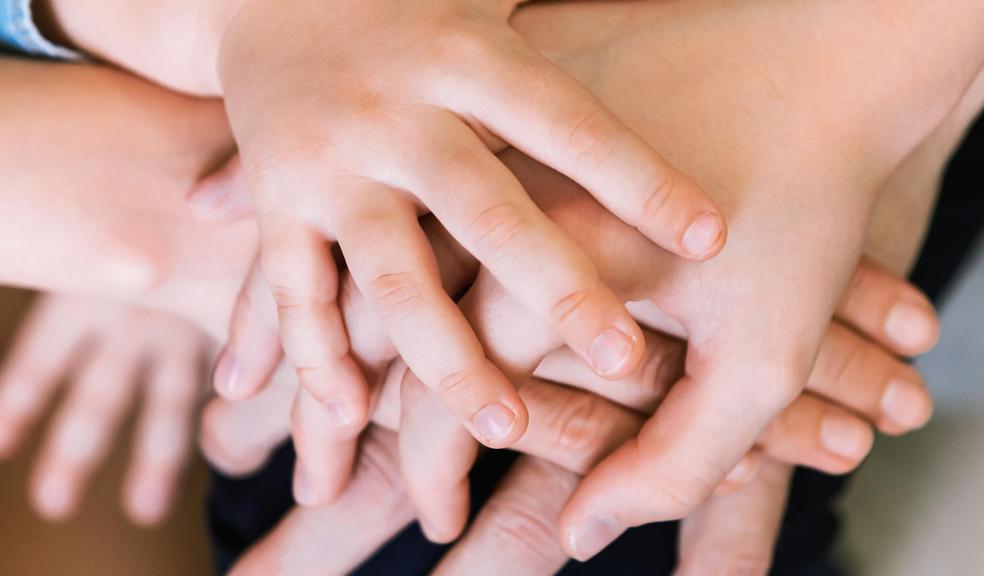
Postnatal depression: How to ask your partner if they’re okay
Postnatal depression: How to ask your partner if they’re okay
Welcoming a baby into the world is an exciting and life-changing occasion, but don’t underestimate how overwhelming it can be too. By trying to block out those feelings of stress or anxiety, there’s a risk that those emotions could lead to you or your partner developing postnatal depression (PND) – a condition which affects around 1 in 10 new parents1.
Victoria Jennings, founder of Bloom Baby Classes, suffered from PND after having her first child. Because of this, she was passionate about building a baby development class that supported other new parents with their postnatal mental health. Here, she shares her top tips for starting a healthy conversation about PND with your better half.
- Spot the signs
Firstly, it’s important to make sure you’re aware of the symptoms of PND as they can affect us in a variety of ways. PND can suddenly appear in the first year after giving birth or may develop unexpectedly or gradually over a longer period of time. It’s natural to feel a bit down, tearful, or anxious in the first week after giving birth, and we call this the baby blues. But unlike PND, the baby blues only tends to last up to two weeks after birth. So, if your partner’s symptoms last longer or start later, they could have PND. The main symptoms include feeling low most of the time, increased irritation towards your family, trouble with sleep, loss of appetite and problems bonding with your newborn baby.
- Plan a day out
Once you feel comfortable venturing out with your newborn as a family, the excitement you’ll feel at being able to introduce your little one to the sounds and smells of the world could spark a real sense of happiness for you both. In turn, this will break down any tension you’ve felt that comes with the new responsibility you both feel, giving you a chance to ask how the other one is feeling about this new chapter. Essentially, getting out from the four walls where you’ve been fighting a lack of sleep, dirty nappies and a new routine and changing your scenery could be all you need to start off that conversation.
- Have a date night
Although you may not feel this is a priority in the weeks immediately after giving birth, it’s still just as important that you take time out as a couple to nurture your bond. And you’ve got some pretty big news to celebrate! So, take a couple of hours out for yourselves and remember what it was you loved to do before there were three of you. A conversation is much easier to have over a shared meal or a fun activity.
And the conversation doesn’t need to be an intense one. Simply ask your partner to describe how they’re feeling in that moment in three words – compare notes to see if you’ve been feeling the same way and how you might be able to work together to take some pressure off the situation.
- Spend one-on-one time as a family unit
With a new bundle of joy in tow, it’s likely you’ve been welcoming an endless stream of guests to the house since you arrived home. This can be really overwhelming as new parents – trying to adapt to a new normal is never going to be easy if the kettle is always on!
Be selfish with your time and commit to at least four nights of alone time for your family per week. In a quiet and relaxed setting, a casual conversation about those first few weeks of parenthood is bound to lead to deeper thoughts about long-term feelings. A safe space will spark a deep and emotional conversation.
- How to take the next step forward
Remember that your partner may have PND but may be too anxious to admit they are struggling, or they may even fight with the concept of asking for help. Empathy, understanding, and patience are important in this period - you need to remember you can’t always fix things yourself. If your partner is comfortable with it, you could support them in finding someone else who went through PND to show them that they’re not alone with the condition.
If you see no signs of improvement, you may want to suggest scheduling a visit from your health visitor or making a GP appointment. In these moments, it’s important to take the time to accompany your partner so they don’t feel isolated – they may not tell you, but it will mean a lot to them.
The arrival of my first daughter, Ana, was one of the best moments of my life. After posting what seemed to be a million photos of Ana on social media, our version of happily ever after was successfully liked, loved, and recorded forever on the internet. But under the happy exterior, I was miserable. I didn’t know it, but PND was getting ready to punch me in the gut, laugh in my face and try to take my marriage down. Without the support of my husband, family and medical professionals, I would have never escaped its clutches. I know all too well just how important it is to do everything you can to support your partner through the challenges of PND.
For more top tips on parenting and baby development, or to find out more about Victoria’s specialist baby development sessions, visit https://www.bloombabyclasses.com/
1 NHS, 2018, Feeling depressed after childbirth.














